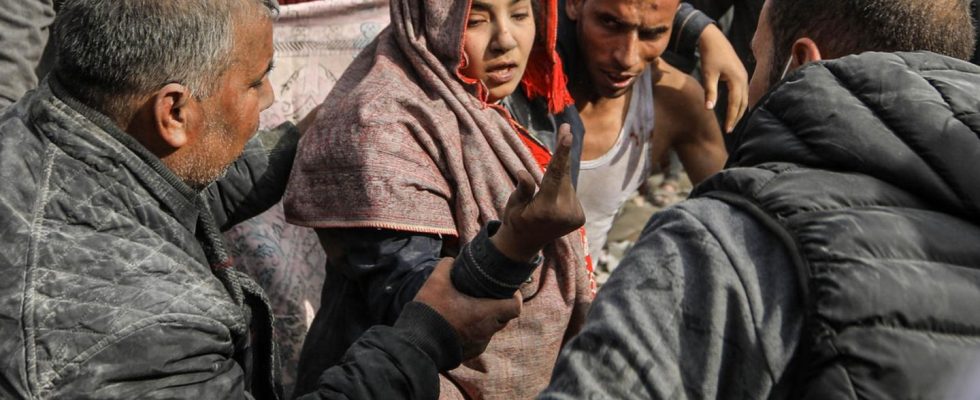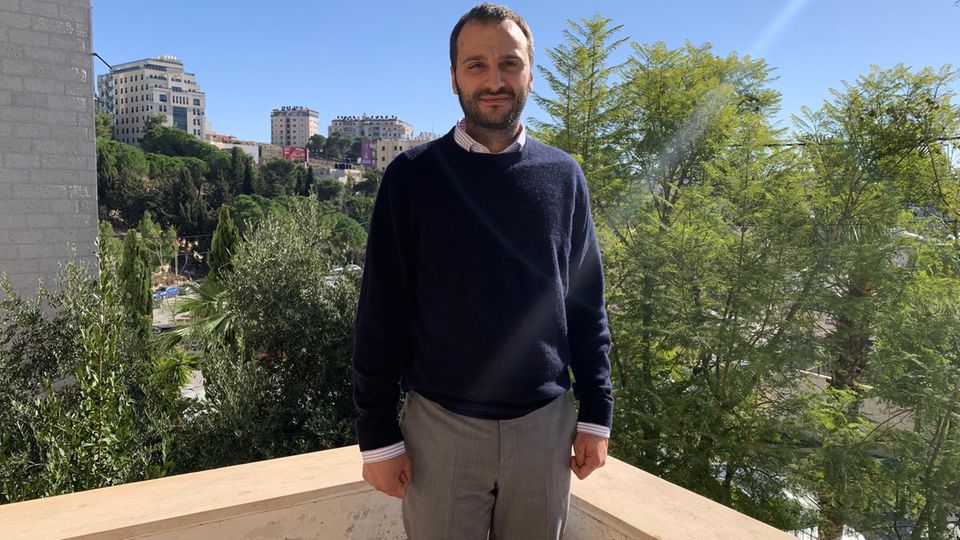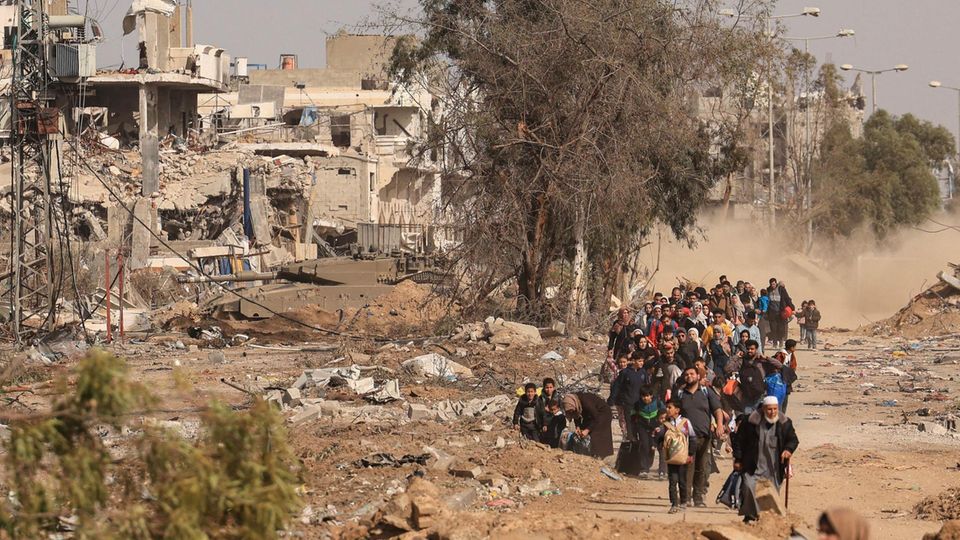Opinion
October 7th Massacre
Israel wants to destroy Hamas – but the plan will not work in the long term
Palestinians rescue a young woman after an attack on the city in Khan Yunis, southern Gaza
© Getty Images
After the Hamas massacre, Israel has the right to defend itself, including to wage war. But it is questionable whether Israel’s warfare in Gaza will make the country safer – or make the situation more dangerous in the long term.
By Mary Abdelaziz-Ditzow
For two months, since Israel’s army attacked Gaza in response to the massacre by the terrorist organization Hamas, large parts of the global community have been directing two closely interrelated demands at the parties to the conflict in Gaza: Hamas is demanding the immediate release of the hostages – and from Israel compliance with international law with regard to the military operation in the Gaza Strip. The problem is that Israel immediately ties an end to its attacks to the release of all hostages – and this calculation has not worked out for around two months. The question is increasingly arising as to whether Israel’s current strategy is actually helping the hostages.
The desire of the Israeli population to finally see the hostages free is understandable on every level. It doesn’t take much empathy to imagine the suffering that the relatives of the hostages and the prisoners themselves have to endure. The terrorist attack of Hamas and there is no justification for the kidnapping of the hostages.
From the point of view of an increasing number of parts of the world, especially in the Global South, the deaths of thousands of innocent civilians in Gaza are equally unjustifiable. The Israeli military offensive has been underway for a few days Gaza Strip also expanded to the south of the area. To where hundreds of thousands of Palestinian civilians have fled from the north to go to supposed safety zones. At least now no one is safe here either. This means that the situation in the Gaza Strip has reached a new level of escalation.
Is the West using its influence on Israel – or is it resigned?
After the breakdown of the ceasefire and the increasingly dramatic conditions in the Gaza Strip, the war is at a crucial psychological threshold: either influential states around the world will be able to persuade Israel to adopt a different military approach. Or the calls for proportionality will become increasingly weaker – until large parts of the global community ultimately give up.
Humans are creatures of habits. We get used to almost everything in our lives. Also the depiction of suffering and pain that happens to others. If we cannot change the situation, many of us will begin to resign out of self-protection. What keeps us from resignation and disinterest are always new scenarios and aspects, as well as new images that keep our attention high. However, in relation to the current situation in the Gaza Strip, such “new” news will soon be in shockingly short supply.
The cruel details of the situation had already been vividly described and demonstrated to the world community for weeks: thousands of uninvolved people Children, mothers and fathers buried under the rubble. Ancient women who make their way from north to south on foot in order to somehow survive. Babies who can no longer be cared for in hospitals.
Arabic channels like “Al Jazeera” have been broadcasting all of these scenes uncensored and live on television for weeks. This, and the protests triggered in this way, have increased the pressure on Western political elites to take a clearer stance towards Israel in terms of compliance with international law: both the tone of French President Macron and the attitude of US President Joe Biden have changed intensified in recent weeks. Yes, the power of images is strong, as can be seen here. But stronger than the power of habit? Depends on.
Deal between Hamas and Israel
Between fear and relief: This is how the hostages were received on their return
However, the expansion of the Israeli army’s deployment to the south of the Gaza Strip could make criticism even louder. Unicef already describes the Gaza Strip as the most dangerous place in the world for children. The WHO urgently appeals to Israel to provide greater protection for civilians. Human rights activists, journalists and Palestinians on site report daily about unsafe conditions in the south and the increasing lack of alternatives to finding a safe place. Will these cries for help make a difference?
Middle East conflict: The USA is looking for a new attitude
The first signs of a new attitude towards Israel were recently observed elsewhere with US President Joe Biden: Due to the attacks by violent Israelis on Palestinians in the West Bank, the US wants to restrict the entry of Israeli extremists.
It would be the first time that the USA followed critical words towards Israel with tangible actions. The USA is Israel’s most important supporter and at the same time the country in which more Jews live than in Israel itself. If general support for Israel crumbles here, as has recently been shown by the blocked aid to Israel in the US Senate, then this could have consequences have. The first effects can already be observed in this country: According to a spokesman for the Foreign Office, Germany would like to extend the entry restrictions for extremist settlers to the European Union.
UN Secretary General António Guterres, in turn, addressed the Security Council on Wednesday. He invoked the rarely used Article 99 of the UN Charter, which allows him to “point out any matter which, in his opinion, may endanger the guarantee of international peace and security.” Although this step is not legally binding, it is still historic. It is to be expected that the Security Council will at least discuss this in the following days. None of this amounts to collective resistance. This would require at least one more binding UN resolution with detailed sanctions for non-compliance with the demands. Whether this will happen remains to be seen.
What seems clear, however, is that Israel cannot achieve lasting protection for the Israeli people with its current approach. On the contrary, the children in Gaza who will survive the current war are probably largely traumatized for their lives. They grow up with pain, suffering and anger in their hearts. The breeding ground for further terrorist organizations is currently being created in Gaza and the Arab region. Hamas’ infrastructure may be destructible, but the ideology of terrorism is currently being immensely strengthened. This sad certainty does not help either Jews or Palestinians. Both peoples deserve to live in peace and dignity.



